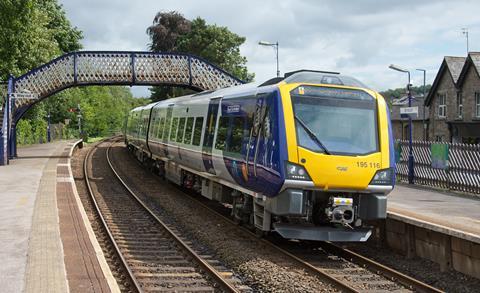
UK: A significant number of CAF multiple units operated by Northern were taken out of service at the beginning of April after the failure of a yaw damper mounting bracket. Sections of the vehicle’s structure were broken away completely in the incident.
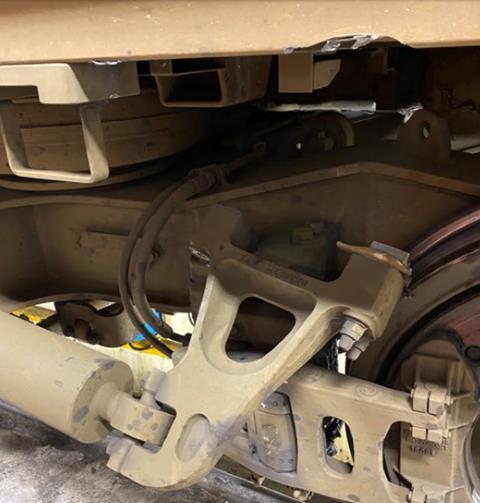
An urgent National Incident Report issued by RSSB on April 3 explained that a mounting bracket had become detached from the body on vehicle 102121 of Class 195 DMU 195 121.
The failure had been found during a maintenance exam, the report explained. ‘Whilst undergoing maintenance exam at Newton Heath depot the yaw damper bracket which attaches to the vehicle body was found to have become detached. The bodyside damper bracket secures to the body through a T-slot arrangement.’
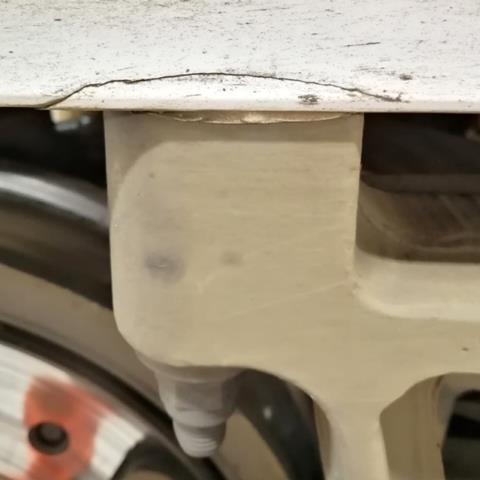
Checks were immediately started across Northern’s fleet of Class 195 DMUs and Class 331 EMUs. Of the 86 trains that had been examined by the time the report was issued, 22 had also been found to have cracks and were taken out of service.
The report noted that a failure could result in a serious derailment, highlighting the possibility that the detachment of a section of the damper assembly at speed could result in someone being seriously or fatally injured.
With the current CAF fleets in service in Great Britain being based on a standard design, the NIR notes that Classes 195, 196, 331 and 397 could all be affected and required inspection as well as the loco-hauled Mk V and Mk Va coaches.
Complex repairs
Further work is needed to understand fully the causes of the failure, but engineering specialists have questioned the strength of the T-slots and their ability to handle the stresses carried by the yaw dampers in the arrangement used on all of these vehicles.
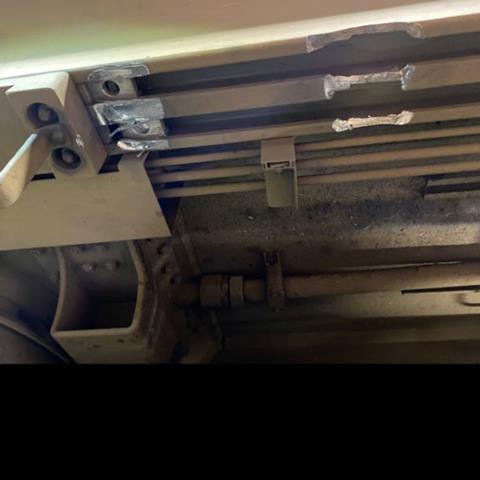
The repairs and modifications are expected to be complex, with one expert suggesting that ‘it will not be possible to just weld the broken sections back in place, and it is likely that full structural testing will be required as part of a long term solution’.
Discussions between Northern and CAF over the next steps are understood to be ongoing. Responses to press enquiries have been cautious, with Northern saying ‘a fault has been identified on some of the new fleet of trains built by CAF and operated by Northern. The fault is affecting the yaw dampers (a system designed to reduce swaying motion in the carriage) and has resulted in 22 trains being removed from service while the issue is investigated. Northern is now working closely with CAF to determine the cause of the fault and to fix the issue. The remaining 78 trains in Northern’s CAF fleet have been fully checked and are operating as normal. The units still in passenger service will be regularly checked as part of the ongoing engineering process.’
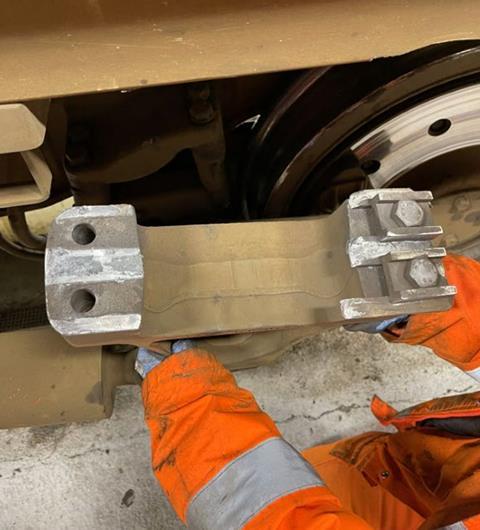
Northern said the temporary removal of the 22 trains was not causing any impact on timetabled services.
Other operators using the train types listed have not commented, although insiders are expressing a lower level of immediate concern, particularly at TransPennine Express where the mileage accrued by its CAF trains is less than those at Northern.
Past problems
CAF rolling stock has been affected by weld failures and other damper fastening problems in the past. In 2016, the Class 332 EMUs then operated by Heathrow Express were grounded after the failure of a weld holding an anti-roll bar drop link bracket to the underside of the coach. The formal report into that incident concluded that the bolster ‘had mainly failed due to fatigue cracking that was generally associated with the stress raising features inherent within weldments’. It commented that ‘the welds used to join the vertical and horizontal bolster plates at the bracket position appeared quite different from those adjacent, being of a larger profile and in one instance appeared to be of questionable quality… It is the opinion that this gross welding defect was the cause of the cracking that resulted in the ultimate failure of this component.’
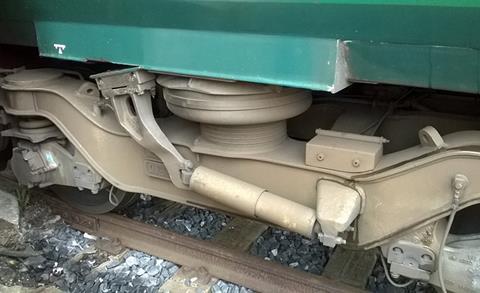
In 2016 a failed weld holding a yaw damper on a CAF-built Mk 4 coach operated by Iarnród Éireann was spotted as the train stopped at a station. The Irish operator felt that this could have had ‘catastrophic’ consequences, and withdrew its whole Mk 4 fleet for inspection. An initial investigation revealed that the construction was not to specification and again the weld quality was described as ‘very poor’.
A subsequent and more extensive investigation by CAF revealed that the fastening design would not achieve its fatigue life and a programme of remedial modifications was carried out across the fleet in partnership with specialist consultancy SNC-Lavalin.
- This story was amended on April 11 to clarify that the failure related to the mounting bracket assembly and not to the yaw damper itself.



